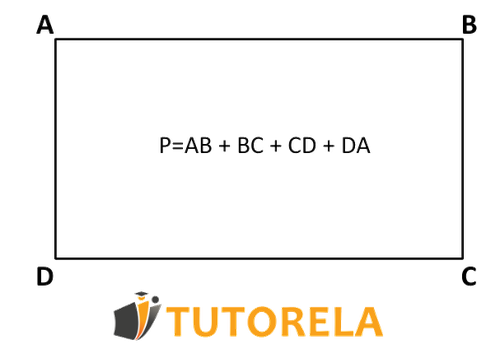For example, if the sides of the rectangle are , its perimeter will be . It is customary to indicate the perimeter by the letter .
Important to remember!
Rectangles have two pairs of opposite, parallel and equal sides. Therefore, it is enough to know the length of two coincident sides to calculate their perimeter.
